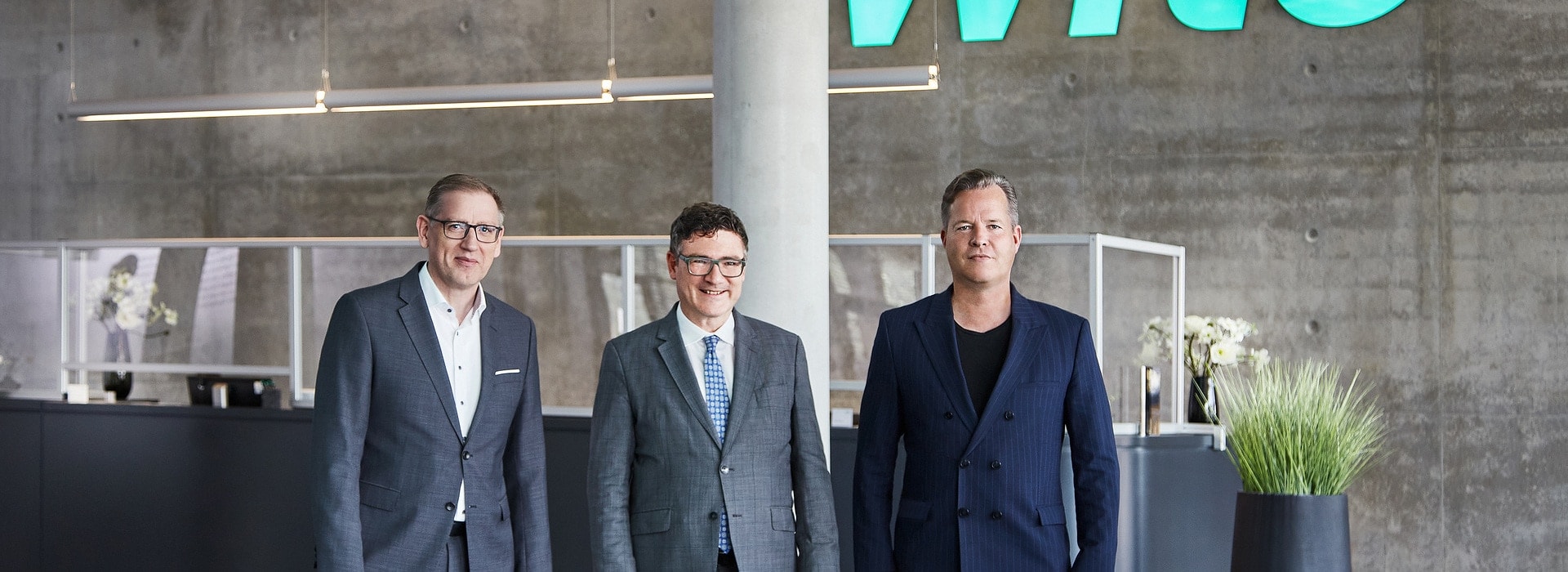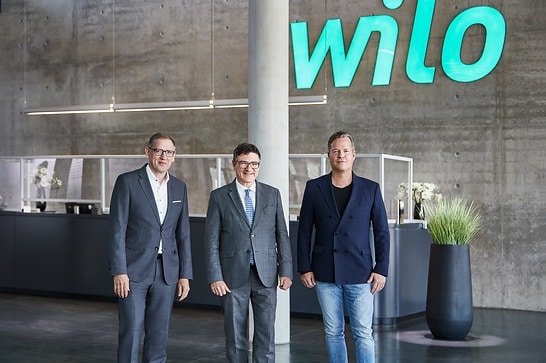Hydrogen – building block of energy transition


Oliver Hermes, President and CEO of the Wilo Group, the Innovation Commissioner for Green Hydrogen of the Federal Ministry of Education and Research, Dr Stefan Kaufmann, and Georg Weber, CTO of the Wilo Group (from right to left).
The Innovation Commissioner for Green Hydrogen of the Federal Ministry of Education and Research, Dr Stefan Kaufmann, visits pump manufacturer Wilo
Dortmund. The Hydrogen Commissioner of the Federal Ministry of Education and Research (BMBF), Dr Stefan Kaufmann, has exchanged views with the multinational technology group Wilo regarding its hydrogen strategy.
During the visit, the President and CEO of the Wilo Group, Oliver Hermes, not only stressed the great importance of hydrogen for the competitiveness and energy independence of the German economy, but he also presented the company’s plans for its own hydrogen plant in Dortmund. The so-called H2 Powerplant is to be put in commission as a pilot plant already this year at the Wilopark.
“Hydrogen replaces fossil fuels and affords Wilo an autonomous and secure energy supply”, Oliver Hermes said. “This issue is becoming essential for companies in the face of current geopolitical tensions, and Wilo is deliberately taking a step ahead here,” he continued. Thanks to the installed photovoltaic system, the corporate group can create climate-neutral hydrogen right here on site and use it for our electric fleet, for example. “In this way, we are closing our local energy cycle, further improving our climate footprint and continuing to effectively implement our sustainability strategy”, Oliver Hermes explained.
Dr. Stefan Kaufmann, Innovation Commissioner for Green Hydrogen since June 2020, underlined the importance of future technologies for Germany as a business location: “Green hydrogen produced from renewable energies is the energy source of the future. The new geopolitical situation makes it clear that we will have to reposition our energy imports in the future. Green hydrogen is a key element for this. It combines the two aims of achieving our climate goals and being more energy independent. At the same time, a green hydrogen economy is associated with a wide range of opportunities. Germany can become the world’s leading provider of green hydrogen technologies.”
Much of the required technology for a hydrogen economy – from emission-free energy production to pumping and transporting water – is already part of Wilo’s core business area. “I also see huge market opportunities, because pumps play a crucial role in the entire hydrogen value chain,” said Georg Weber, CTO and member of the Executive Board of the Wilo Group. The H2 Powerplant is an important step in gaining early practical experience as producer, user, and later supplier of hydrogen technology.
Particularly in view of the current security of energy supply, Oliver Hermes sees great potential for the modular hydrogen plant. The H2 Powerplant converts energy from the sun, wind and water into green hydrogen by means of electrolysis. If required, the hydrogen can be converted back into electricity and heat via a fuel cell. The waste heat can be used in the combined system or converted into cooling on site. Plant operators and municipalities could produce and use climate neutral energy locally – to not only counteract climate change but also become the world’s innovation leaders. “The H2 Powerplant could be an important answer to the most pressing questions regarding the future. For this to happen, however, politics and business must work hand in hand”, said Oliver Hermes, calling for better cooperation between the two.











